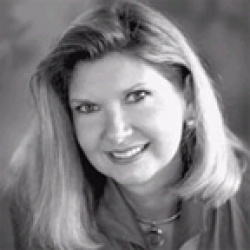The Future Is In Mothers’ Hands
Who is a typical American mother? “She is black and white, single and married; she is rich and she is poor; she works out of the home or she stays at home. She holds in her hands the hope for the security and the future of America. For it is not only in the passing of legislation or the strident call to arms that we change history and shape mankind, but in how we learn to relate to each other in the home. Here, in simple terms, is where the future of America is formed,” states Rosalie Gaziano, American Mothers, Inc.
2002 Mother of the Year.
Gaziano has been traveling the U.S. encouraging mothers this past year. She says, “Our young mothers need to know the importance of their service as mothers. The world has slighted the value of motherhood, and I am convinced that our condition in this fragile world is not determined by legislators and ideologies alone, but by how we learn to relate to each other in our homes. The heart of America is the home.”
Indeed, many women are experiencing a sense of confusion about the traditional roles of wife and mother. Is it best for the child when mothers stay at home? Does daycare harm the emotional growth of the child? What about quality time? Does more discipline or more permissiveness lead a child to independence?
When a choice must be made regarding a moral decision, when an ethical business decision must be made, when a soldier stares fear in the face on the battlefield, where does a child’s strength come from? The values taught in their home.
A mother’s leadership begins at conception—by how she takes care of her body during pregnancy. After birth, it’s her touch, her tone of voice, her daily actions and responses to life’s circumstances that a child learns to trust. We’re all children, but as Gaziano says, “By birth you were born a woman, by choice you became a wife, and always you will be a mother.”
This month we celebrate 25 years of women’s leadership with the YWCA. This issue highlights the women receiving the YWCA Leader Awards. She’s black and white, single and married; she’s rich and she’s poor; she works out of the home or she stays at home. She volunteers at school, church, and in the community; she mentors youth and colleagues.
She envisions and leads a committee, or she tediously attends to the behind-the-scenes details. She’s leading in the arts and education, business and industry, communications, the professions, human rights, community service, and in mentoring. She may not be a mother, but will always be a child whose mother taught her values. She holds in her hands the hope for a secure future. TPW
2002 Mother of the Year.
Gaziano has been traveling the U.S. encouraging mothers this past year. She says, “Our young mothers need to know the importance of their service as mothers. The world has slighted the value of motherhood, and I am convinced that our condition in this fragile world is not determined by legislators and ideologies alone, but by how we learn to relate to each other in our homes. The heart of America is the home.”
Indeed, many women are experiencing a sense of confusion about the traditional roles of wife and mother. Is it best for the child when mothers stay at home? Does daycare harm the emotional growth of the child? What about quality time? Does more discipline or more permissiveness lead a child to independence?
When a choice must be made regarding a moral decision, when an ethical business decision must be made, when a soldier stares fear in the face on the battlefield, where does a child’s strength come from? The values taught in their home.
A mother’s leadership begins at conception—by how she takes care of her body during pregnancy. After birth, it’s her touch, her tone of voice, her daily actions and responses to life’s circumstances that a child learns to trust. We’re all children, but as Gaziano says, “By birth you were born a woman, by choice you became a wife, and always you will be a mother.”
This month we celebrate 25 years of women’s leadership with the YWCA. This issue highlights the women receiving the YWCA Leader Awards. She’s black and white, single and married; she’s rich and she’s poor; she works out of the home or she stays at home. She volunteers at school, church, and in the community; she mentors youth and colleagues.
She envisions and leads a committee, or she tediously attends to the behind-the-scenes details. She’s leading in the arts and education, business and industry, communications, the professions, human rights, community service, and in mentoring. She may not be a mother, but will always be a child whose mother taught her values. She holds in her hands the hope for a secure future. TPW

